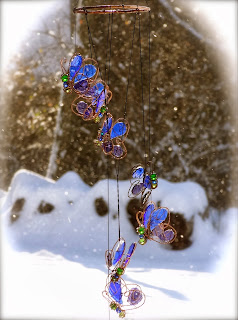 |
| photo courtesy sxc.hu |
Does the above quote describe any of your writing sessions of late, even though the new year has barely begun? Take heart. You're in good company!
I came across these words of Dickens in an article from the archives of the New York Times: The More They Write, The More They Write, by Jay Parini, dated July 30, 1989. In it, Parini discussed the productivity of some of the great writers of the 19th century and shared insights into their peculiar habits that helped them sustain their high level of writing output.
He wrote about Sir Walter Scott (1771-1832) whose work included 27 novels and a 700 page journal: "The ferociously driven author always had at least two projects in the works at any given time, and...two desktops (which) helped to keep them separate." Two desks? That would be a luxury. Can we also have an extra day in the week?
Honore de Balzac (1799-1850), who wrote numerous books between 1822-1848 (eight books in 1842 alone), drank potent cups of coffee. "To spur himself on," Parini wrote, "Balzac used heavy doses of coffee that he prepared in the Turkish fashion, infusing the grounds in cold water, then heating them; he gradually used less and less water, creating a brew as thick as mud--a caffeine riot." Maybe some chocolate, too?
"Dickens (1812-1870), he added, "had no will to resist taking on new projects. Since his novels sold exceedingly well, publishers were only too willing to get him to sign on the dotted line. At several points in his career, he worked simultaneously on two or three novels while editing a journal and managing the affairs of a vast extended family. His energy level was such that he often took long late-night walks to cool his nerves." Yes, walks. I can identify with that, but not late at night!
Yet, Anthony Trollope (1815-1882), author of over 60 novels, wrote only three hours a day. Trollope was quoted as saying, "All those I think who have lived as literary men will agree with me that three hours a day will produce as much as a man ought to write." His plan was to write 250 words every quarter of an hour. Three hours sounds reasonable, but 250 words every 15 minutes? Hmmm....
So what can we take from this? A few thoughts:
1. Productivity is a personal thing.
2. Productivity...ahem...takes work.
3. But productivity doesn't always mean driving ourselves to exhaustion.
4. Productivity is a result of balance, being realistic, and discovering our own personal rhythms (and limits)--although the examples of others can be a source of inspiration, including 19th century authors for the 21st century.
Getting an insight into a-day-in-the-life of the famous Charles Dickens makes me want to re-read one of his all time classics, A Tale of Two Cities. The opening line has stayed with me since high school: "It was the best of times, it was the worst of times..."
Sort of describes the writing life in general, doesn't it?
Do any writerly idiosyncrasies help keep your words flowing? Unusual patterns or habits? Do you struggle with "Charles Dickens"-type days? Any plans to read a classic this year?
__________________________









